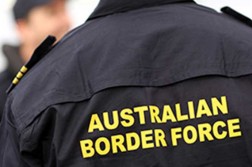Anzac Day always brings with it a flurry of discussion regarding just what relevance the day has to a modern, industrialised, cable-ready, barista-infested nation like ours? There are some who claim it has no relevance at all, that a full 99 years have passed since the landing at Gallipoli and that it is time we started basing our national identity on more contemporary concepts, like multiculturalism, or tolerance, or hatred of multiculturalism and tolerance.
The question has become: do we desire an identity founded on a failed military campaign of long ago, or do we want a new identity that will probably be a big hassle?
This year the debate has become even more furious thanks to the publication of the book Anzac’s Long Shadow: The Cost Of Our National Obsession, by former military officer (and Godfather of Soul) James Brown. Brown’s hypothesis is – and forgive me if I over-simplify here – that the First World War was a big bunch of stupid and people who think it was great are wankers.
This hypothesis has been challenged by many prominent professional hypothesis-challengers, such as Mervyn F. Bendle, who wrote in Quadrant that James Brown smells and is dumb; and Nick Cater, who wrote in The Australian pretty much what he always writes in The Australian: Australia is awesome so shut up.
Who is right? Is Brown correct when he asserts that the Anzac myth has bred a tradition of military exceptionalism that warps our nation’s identity and creates a horribly distorted view of the reality of warfare? Or are Cater and Bendle et al right when they claim that Brown is essentially urinating on the tomb of the unknown soldier? The truth, as always, lies somewhere clearly on one side and not on the other. But which?
Any calm objective reading of Australian national affairs will recognise that the Anzac tradition is today more relevant than ever, given the threats our country faces from all sides. The Abbott Government has illustrated this with its decision to spend $12 billion on 58 more Joint Strike Fighters.
It is possible that a country less invested in the lessons taught it by a glorious history of failed invasions of Turkey might not have identified the pressing need for dozens of new fighter jets in such a timely manner. It may be that it is the memory of Albert Jacka, Simpson’s Donkey, and Mel Gibson, that inspired the prime minister to take such decisive action to keep us safe from those who would rob us of our freedoms.
Now there are some who scoff at the JSF purchase, but what is the alternative? Allowing our enemies to get the drop on us and exploit that gaping 58-more-Joint-Strike-Fighters-shaped hole in our national defences? A simple reading of the daily news will make the threats to our liberty clear: barely a day goes by when we do not see another squadron of Indonesian or Chinese or Russian jets swooping over our homes, giggling at how easy we’ll be to bomb and making obscene gestures at our womenfolk.
They’ll be giggling on the other sides of their helmets now, though, won’t they? Let’s see them try to bomb us when they’re being peppered with Joint Strike Fighter fire.
But what has this got to do with Anzac Day? I’d have thought that would be pretty bloody obvious, but I’ll explain.
You see, while there is much conjecture among historians as to what exactly took place at Gallipoli all those years ago, on one issue they are more or less united: the Allied troops did not have any Joint Strike Fighters. Think about that for a moment: it’s not just that they didn’t have 58 – they didn’t have ANY. That’s how primitive our military was at the time. More importantly, imagine if the Anzacs HAD had 58 Joint Strike Fighters. The campaign, and the war, would’ve turned out very differently.
Thanks to our veneration of the Anzac legend, we won’t be making that mistake again. Let Mr So-Called James Brown explain exactly how we’d be able to spend billions of dollars on planes if it weren’t for our military exceptionalism.
The fact is, despite the span of years between our own lives and those of the brave boys who stormed the beaches of the Dardanelles in defence of whatever it was they were defending, Anzac Day continues to deliver real, tangible benefits to modern Australians. It’s not just the planes – take the recent news that there are ghosts at Anzac Cove. Thanks to Anzac Day, we are now generating ghosts at a level appropriate to a middle-power. Without it, we would be an international laughing stock, forever envious of the high-quality ghosts of Japan, the White House’s famed Spirit of Lincoln, and the spectre of Sid James that even now haunts the halls of Buckingham Palace.
Who is this mysterious Anzac ghost? Who knows? Maybe it’s Albert Jacka, or Sir John Monash, or the late Paul Hogan. It doesn’t matter – what matters is we HAVE a ghost, and the legacy of the Anzacs remains as strong as ever.
Other benefits of Anzac Day include: tourism; jobs for poppy harvesters; increased beer sales both here and abroad; greater respect for our elders; and of course the booming books-questioning-the-Anzac-myth industry. Indeed we a more prosperous country, both fiscally and spiritually, for it.
So remember, this Friday, when you’re sleeping through the Dawn Service, spare a dream for the men and women who work tirelessly to keep the myth alive. They’re keeping the country itself alive while they’re at it.
Donate To New Matilda
New Matilda is a small, independent media outlet. We survive through reader contributions, and never losing a lawsuit. If you got something from this article, giving something back helps us to continue speaking truth to power. Every little bit counts.



